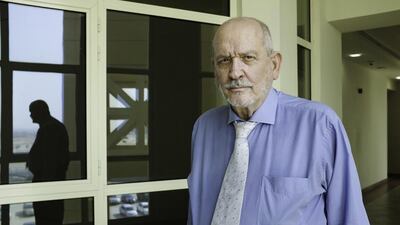DUBAI // Schools are failing to teach pupils to think critically and instead are placing more emphasis on learning by rote, according to a UAE academic.
Dr Clifton Chadwick, an education lecturer at the British University of Dubai, is the author of How To Teach Your Child To Think, a book that stresses the importance of parental involvement.
“The general concepts are applicable everywhere but I do wish I could get people in this country to take it more seriously,” Dr Chadwick said. “There’s a lot of statements about how important education is but between this and the reality there’s a big gap.”
On a visit to a school with a good reputation, the head teachers told him critical thinking was a key skill taught in the classroom. However, he said he visited 13 classrooms and found it absent.
“It’s fundamentally more rote memorisation than real thinking,” he said. “Many schools are like this.”
Dr Chadwick said when he was asked to write the book, he realised that “teachers don’t teach thinking, they teach content”.
“I realised the people I needed to talk to about teaching thinking were the parents. It’s not just about teaching, but teaching how to think about that stuff you’ve learnt.”
Dr Natasha Ridge, head of research at Al Qassimi Foundation for Policy Research in Ras Al Khaimah, said in the UAE context, the prominence of critical thinking varied according to school systems.
“In the International Baccalaureate or British systems, there’s more critical thinking embodied in the curriculum, encouraging kids to think for themselves,” she said. “In the Government system, there’s not a lot of that. It’s more textbook based and kids aren’t encouraged to question things or come up with ideas on their own.”
Critical thinking must both be fostered at home and in school “as a way of thinking that helps us to make sense of the world we live in, rise above our prejudices, lean into other people’s lives, resolve conflicts, and solve problems”, said Dr Catherine Hill, dean of education at the American University of Dubai.
She said, however, that rote learning and memorisation were still valuable.
“Today’s world is growing increasingly complex; no one can expect to become an expert in any one subject area. Knowledge is multiplying exponentially every day and that fact alone tells us we can’t master it all.
“Therefore, we need to teach children how to learn, how to think, how to reason, how to explore, how to connect the dots between and among the traditional disciplines. ”
When it comes to employment, it is also a vital skill, added Dr Ridge.
“Employers want employees who can think for themselves, people who can come up with solutions to problems.”

